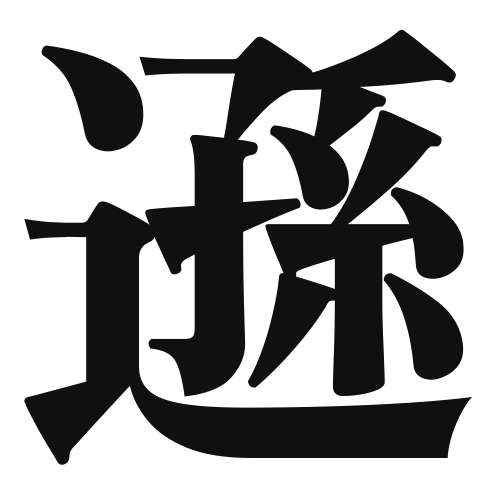1. Overview of Meaning
The kanji “遜” (pronounced “son”) generally means “to be modest” or “to humble oneself.” It conveys the idea of showing humility and respect towards others, often in social interactions.
2. Formation and Radical
Formation of the Kanji: The kanji “遜” is a compound character (会意文字) that combines elements to convey its meaning. It consists of the radical for “road” (辶) and the character “尊” (son), which means “to respect.” This combination suggests a respectful demeanor in one’s journey or interactions.
Radical: The radical of “遜” is 辶, which relates to movement or a path, indicating the context of social interactions.
3. Examples of Usage
Common Words and Phrases:
- 遜色 (sonshoku) – to be inferior or lacking in comparison
- 遜る (yadoru) – to humble oneself
Example Sentences in Daily Conversation:
- 彼はいつも遜な態度を持っています。 (Kare wa itsumo son na taido o motteimasu.) – He always has a modest attitude.
- 遜色ない作品ですね。 (Sonshoku nai sakuhin desu ne.) – This work is not inferior at all.
4. Synonyms and Antonyms
Similar Kanji:
- 謙 (ken) – meaning “humble” or “modest,” but often used in a more formal context.
Antonyms:
- 傲 (go) – meaning “arrogant” or “proud,” which is the opposite of being modest.
5. Cultural and Historical Background
Relation to Japanese Culture: In Japanese culture, humility is highly valued, and the concept of “遜” reflects this cultural trait. It is often seen in social interactions, where individuals are expected to show respect and modesty.
Proverbs and Idioms:
- 謙虚は美徳 (Kenkyō wa bitoku) – “Humility is a virtue,” emphasizing the importance of being modest in character.
